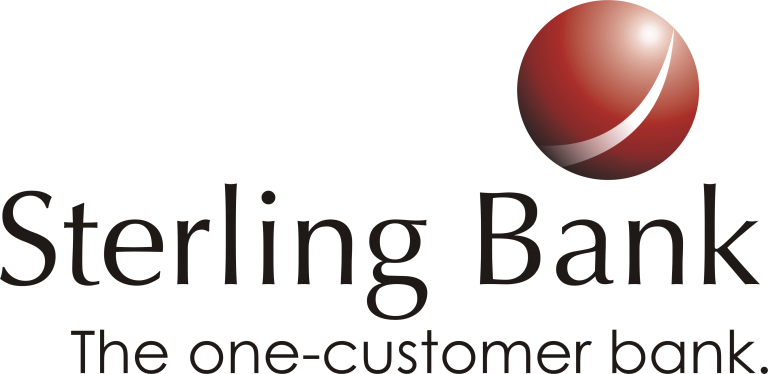Sixteen days after the regulatory period for filing its audited report for the year ended December 31, 2017, directors of Sterling Bank Plc, on Monday presented its financials, with highlights such as profit after tax growth faster than gross earnings.
A look at the figures showed that an 89.84% drop in income tax expenses resulted in net profit rising faster than profit before tax, just as Earnings Per Share of Sterling Bank climbed from 18 kobo in 2016, to 30 kobo. From this, the board is proposing a dividend per share of two kobo, payable to those whose names appear on the register of shareholders when it closes from Monday, April 30 to Friday, May 4, 2018; while qualification date for the dividend is April 29, 2018. Payment will however be subject to approval of the shareholders at the annual general meeting on May 17, 2018, same date as the electronic transfer of the dividend proposed.
The board of Sterling Bank may however need to clarify whether it is proposing a two kobo dividend as in the corporate actions submitted to the Nigerian Stock Exchange separately, or three kobo as contained on page 164 of the report under the five-year summary. According to the summary shows that while nothing was paid in 2016, the bank paid nine kobo a year earlier; six kobo in 2014; and 25 kobo of 2013, which remains the highest for the period.
Also, Sterling Bank reported an improvement in its total non-performing loans as a percentage of gross earnings improved to 6.2%, from 9.9%
Specifically, gross earnings for the period under review rose N22.05bn or 19.78% from N111.44bn in 2016 to N133.49bn, a breakdown of which showed that interest income formed the bulk at N110.318bn, as against N99.104bn a year earlier.
A breakdown by business segments showed that the bank earned N49.334bn of its interest and non-interest income from corporate and investment bank; followed by N44bn from commercial and institutional banking, while retail banking fetched N12.421bn; ahead of non-interest banking, N3.15bn; while its special purpose vehicle earned N1.41bn. The bulk of interest and non-interest expense also came from corporate and investment bank at N27.936bn; commercial and institutional banking, N22.445bn; resulting in net interest and non-interest margin of N21.398bn and N21.559bn respectively.
Fee and commission income climbed slowly to N12.876bn from N10.788bn, driven by the N5.172bn from corporate and investment bank; N4.257bn from commercial and institutional banking, as well as N3.406bn from retail banking.
Net trading income soared relatively from just N235m to N4.669bn; even as other operating income improved significantly from N1.313bn to N5.627bn. Operating income therefore rose to N73.352bn, as against the N68.326bn reported in the corresponding period of 2016.
The group successfully contained growth in impairment charges to N12.267bn from N11.714bn, which was driven by the N9.62bn from commercial and institutional banking, and N3.415bn from the retail space in 2017. Net operating income after impairment charge stood at n61.085bn, which was a slight 7.9% rise over the N56.612bn reported a year earlier.
Personnel expenses remained flat at N11.545bn from N11.522bn; general and administrative expenses dropped slightly also to N16.554bn from N18.019bn; just as other operating expenses increased marginally to N14.783bn from N12.701bn. Depreciation and amortization stood at N4.995bn from N4.174bn in 2016; even as other property, plant and equipment costs rose from N4.174bn to N4.602bn; resulting in total expenses of N52.479bn, slightly up from N50.612bn.
Profit before tax therefore rose N2.606bn or 43.43% up from N6bn in 2016 to N8.606bn; while income tax of N85m, which dropped by 89.84% to N837m, resulted in net profit for the period of N8.521bn, which was better by N3.358bn or 65.03% than the N5.163bn of 2016. By segment, corporate and investment banking was the most profitable for Sterling Bank; ahead of N4.589bn from retail banking; while it suffered a huge loss of N4.442bn from the commercial and institutional banking business.
Sterling Bank also reported gains on available for sale securities sold include in profit stood at N11.323bn, as against the loss of N1.154bn; raising other comprehensive income for the period from N8.755bn, from N17.276bn. This was after taking into consideration the fair value loss on available for sale investments of N2.568bn from N11.323bn loss a year earlier.
Total comprehensive income for the year therefore came to N17.276bn, up from the previous N7.314bn loss.
The amount transferred after dividend proposed resulted in total comprehensive income for the year of N17.276bn, compared to a loss of N7.314bn in 2016.
The bank its peers in the league of those with trillion Naira balance sheets, as total assets climbed to N1.072tr from N834.192bn; with customer loans and advances rising to N598.073bn from N468.25bn.
Total liabilities however increased to N969.264bn from N748.53bn, out of which customer deposits increased to N684.834bn from N584.734bn; following which shareholders’ funds improved to N102.937bn, as against N85.662bn in 2016.
Trending Today
Menu








